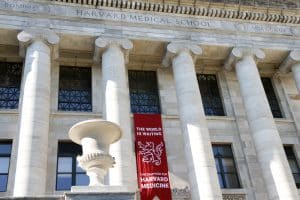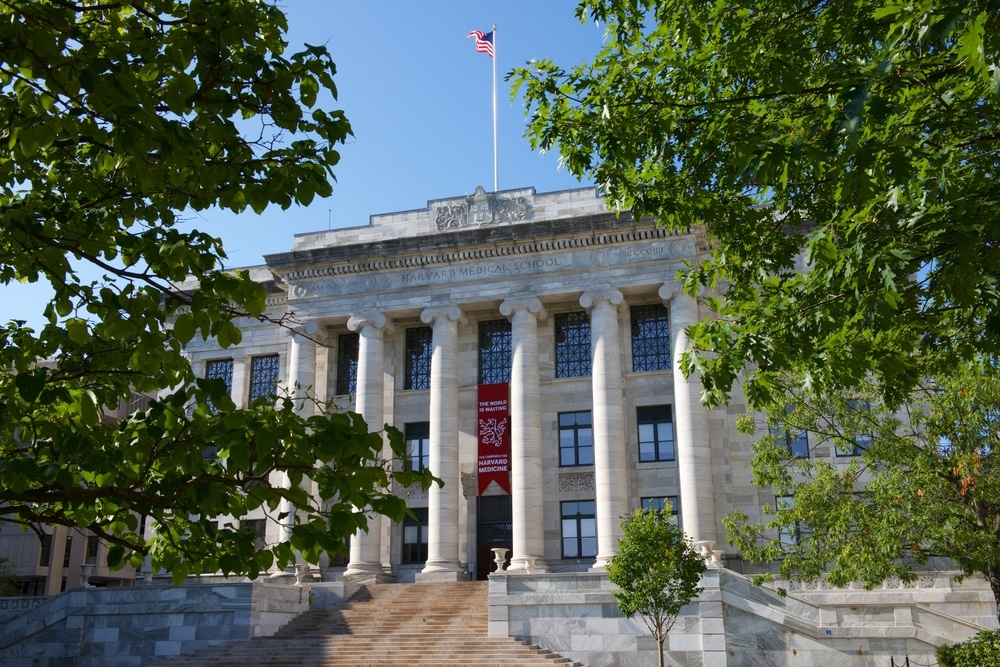How to Get Into Harvard Medical School
How does one get into Harvard Medical School? Harvard Medical School, nestled in the heart of Boston, Massachusetts, stands as a paragon of medical education, consistently recognized as one of the top medical schools in the world. Renowned for its rigorous academic program, groundbreaking research, and commitment to cultivating the next generation of medical leaders, it is no surprise that many aspiring physicians dream of donning their white coats.
However, gaining admission into this prestigious institution is no small feat. The process is highly competitive, with applicants from across the globe vying for a coveted spot. As such, understanding the intricacies of the application process, the qualities Harvard seeks in its students, and the strategies to build a compelling profile are crucial for those aiming to walk its hallowed halls.
What Programs are Offered at Harvard University’s Medical School?
At Harvard Medical School, students have two main entry points for a traditional medical degree: Pathways and Health Sciences and Technology (HST).
Pathways
The Pathways curriculum emphasizes early clinical experience, population science, and pedagogical approaches promoting active learning. Here’s a quick glimpse of the curriculum structure:
- Year 1: Foundation courses including Biochemistry, Cell Biology, Genetics, and more. Clinical practice is integrated with a segment called “Practice of Medicine.”
- Year 2: Advanced courses like Neuroscience and Psychopathology, coupled with primary clinical observational experiences.
- Year 3: Continuation of clerkships in various fields including Medicine, Pediatrics, and Psychiatry.
- Year 4: Prepares students for the USMLE Step 2 CK exam and includes an encompassing Clinical Capstone experience.
Health Sciences and Technology (HST)
A collaborative program between Harvard Medical School and MIT, HST caters to students aiming for careers in biomedical, physical, or molecular research.
- Year 1: Covers foundational courses similar to Pathways but integrates molecular diagnostics and bioinformatics.
- Year 2: Emphasizes research, molecular-level diagnostics, and an introduction to clinical medicine.
- Year 3 & 4: Similar structure to Pathways, but integrated with the HST research component.

Dual Degrees & Special Programs
Doctor of Medicine and Doctor of Philosophy (MD/PhD): An eight-year program jointly offered by Harvard and MIT, funded by NIH. It’s designed to train physician-scientists across various research fields.
Doctor of Medicine/Master of Academic Discipline: Allows students to earn both degrees in five years, ideal for those looking into Bioethics or Biomedical Informatics.
Doctor of Medicine/Master of Business Administration (MD/MBA): A collaboration between Harvard Medical and Business Schools, this program equips medical professionals for leadership roles within the medical industry.
Master of Medical Science/Doctor of Medicine: A program emphasizing mentored research and can link to various medical disciplines.
Doctor of Medicine/Master of Public Health: Offered in collaboration with the Harvard Chan School of Public Health, it’s tailored for those interested in public health or preventive medicine.
Doctor of Medicine/Master of Public Policy: Jointly offered by the John F. Kennedy School of Government and Harvard Medical School, it prepares students for roles in policy development and public health program expansion.
Harvard Medical School offers a diverse range of programs that cater to various aspirations within the medical and health-related fields. Whether you’re inclined towards clinical practice, research, leadership, or public health policy, HMS presents opportunities that are both challenging and rewarding. As one embarks on this esteemed journey, it’s more than just a pursuit of a degree; it’s about shaping the future of medicine and healthcare for the betterment of society.
Where is Harvard Medical School Located?
The main campus of Harvard Medical School can be found at 25 Shattuck Street, Boston, Massachusetts 02115. This address serves as the institution’s mailing address.
Harvard Medical School is via Longwood Avenue, which intersects with the avenue Louis Pasteur at a point that’s both convenient and direct and is the way to go if you want to get to the university as quickly as possible.

You can visit the website of Harvard Medical School if you would like to obtain additional information such as maps, directions, and other helpful information that will assist you in making your way to the Longwood/Boston Campus.
How Hard is it to Get Into Harvard Medical School?
If you’re considering Harvard Medical School, it’s crucial to understand the selection criteria for admission.
Some of the prerequisites include:
- A full year of Inorganic Chemistry with Laboratory Instruction (AP credit can satisfy one semester).
- A full academic year of Organic Chemistry with Laboratory.
- A full year of Biology with Laboratory.
- One academic year of biochemistry.
- One academic semester of biostatistics and statistics.
- Calculus for one academic year (a score of four or five on the Advanced Placement exam is sufficient; however, HST applicants should enroll in higher-level math classes).
- A course in physics, preferably with a lab (for HST applicants, calculus-based physics is preferred).
- One year focused on writing, either in the humanities or social sciences.
Admission Statistics for Harvard Medical School (2021-2022)
For the 2020-2021 cohort, the acceptance rate at Harvard Medical School was 2.7%. This rate remains relatively consistent year-to-year. Here’s a detailed breakdown:
- Harvard received 8,002 medical school applications.
- 851 candidates were interviewed.
- Out of those interviewed, 222 were further considered, which is 26% of the interviewees.
- 164 students were admitted.
- This results in an overall acceptance rate of 2.7%.
International and out-of-state students are encouraged to apply. While stellar academic achievements are highly regarded at Harvard Medical School, ensure that your undergraduate coursework remains rigorous.

Keep in mind that while the provided statistics represent averages, not every admitted student will have a perfect GPA or MCAT score. For a better perspective, here’s data on the typical admitted student:
- MCAT Score (2022): Average is 520 (range: 513-525).
- GPA (2022): Average overall GPA is 3.94 (range: 3.74-4.0) and BCPM GPA is 3.95 (range: 3.69-4.0).
Letters of Recommendation for Harvard Medical School
Harvard Medical School allows up to six recommendation letters for each applicant. The letters should adhere to the following guidelines:
- Include at least two from science professors familiar with the applicant’s academic abilities.
- Contain at least one from a non-science professor.
- If applying for the MD-PhD program, letters from all research supervisors are mandatory. These letters are required for both MD and MD-PhD programs.
- Any additional letters beyond the six should be from research supervisors.
- If supplementing a premedical advisory committee evaluation packet with more letters, the packet itself counts as one letter.
While not mandatory, applicants out of school and currently employed should consider submitting a recommendation from their current employer.
Work and Activities at Harvard Medical School
There’s no requirement to submit a CV or resume. Instead, you’ll utilize the centralized AMCAS system to detail your achievements. This system allows you to discuss your “work and activities entries,” which are sent to all medical schools you apply to, including Stanford.
Key points about AMCAS entries:
- The AMCAS system lets you showcase what you’ve accomplished during your premedical years.
- You can describe up to 15 activities, each with a 700-character limit.
- You can highlight three of these as most meaningful, giving you an additional 1,325 characters for elaboration.
Make the most of this by detailing duties, insights, learnings, and impacts you’ve made. Invest time in these entries, starting well in advance to ensure quality.
The Admissions Process at Harvard Medical School
When contemplating entry into Harvard Medical School or any other highly competitive medical institution, prioritize deep, enduring, and impactful involvements. It’s essential that these involvements showcase your significant contributions and unique successes. Harvard consistently seeks candidates with the potential to become prominent leaders in medicine. So, presuming you have the requisite academic credentials, what activities should you particularly excel in to differentiate yourself during the Harvard Medical School admissions process?

Research
An impressive 99% of Harvard’s first-year medical students had research experience, virtually making it a necessity for prospective candidates. The more advanced your research, the better you’ll distinguish yourself during the admissions process. Recognition at national or international levels through publications or presentations can be particularly advantageous.
Medical or Clinical Volunteer Experience
Similarly, 93% of the students had medical or clinical volunteer experience. To be a compelling candidate, immerse yourself in medically relevant community engagements. It’s particularly beneficial to work with diverse groups and underserved populations.
Shadowing a Physician or Gaining Clinical Experience
About 88% of students had physician shadowing experiences. To stand out, garner as much experience as possible across varied medical environments and with diverse professionals. Even though Harvard is research-focused, they highly value primary care exposure.
Community Service
Furthermore, 81% of students participated in other forms of community service.
The Interview Process at Harvard Medical School
Besides orientation, a facility tour, lunch, and class observation, candidates will typically undergo two one-on-one interviews. Those applying to the HST and MD/Ph.D. programs will have four interviews with faculty members.
From students’ accounts, Harvard’s interview process is conversational and relaxed. Interviewers often delve into your background, experiences, and motivations. Receiving an interview invite from Harvard Medical School is a strong endorsement; it means your personal and secondary essays sufficiently resonated with the admissions committee. Given the ongoing concerns with COVID-19, these interviews are currently conducted virtually.
Harvard Medical School follows a traditional Q&A format for their interviews. To prepare, review the sample questions available on Harvard’s website. While numerous questions circulate online, rest assured your actual interview won’t encompass them all. Each interview typically lasts no more than 30 minutes.
How Much Does Harvard Medical School Cost?
When considering a medical school, it’s essential to factor in your financial situation. So, how does the financial aspect weigh when considering admission to Harvard Medical School?
Your total cost of attendance isn’t limited to tuition; it also encompasses living expenses. Accommodation and food are as crucial as the academic costs. Here’s a breakdown of the expenses you’d incur at Harvard Medical School. (Note: The prices provided are for the MD and HST programs. For dual-degree program costs, contact the admissions departments directly.)
First Year:
-
- Cost of Tuition: $66,284
- Health Insurance Fee: $4,040
- Living Expenses: $27,045
- Additional Fees: $208
- Total Cost of Attendance: $99,416
Second Year:
-
- Cost of Tuition: $66,284
- Mandatory Fees: $1,314
- Health Insurance Fee: $4,040
- Additional Fees: $274
- Living Expenses: $33,050
- Total Cost of Attendance: $104,962
Third Year:
-
- Cost of Tuition: $66,284
- Mandatory Fees: $1,314
- Health Insurance Fee: $4,040
- Additional Fees: $928
- Living Expenses: $31,840
- Total Cost of Attendance: $104,406
Fourth Year:
-
- Cost of Tuition: $66,284
- Mandatory Fees: $1,314
- Health Insurance Fee: $4,040
- Additional Fees: $259
- Living Expenses: $31,535
- Total Cost of Attendance: $103,432
Total cost for all four years: $412,216
The HST program’s total cost is slightly lower at $407,146.
Attending Harvard Medical School is a significant financial undertaking. These figures might seem daunting, especially for those self-financing their education.
However, financial aid is available. For instance, 70% of the Class of 2025 received some form of financial assistance, with many obtaining around $50,000 on average. By exploring scholarships, grants, and student loans, you might find you won’t bear the full brunt of these costs.
Although graduating from medical school debt-free is increasingly rare, it’s possible to reduce these costs with careful planning and financial assistance substantially.
As part of our pre-med advising and medical school admissions consulting services, AdmissionSight is here to help. With over a decade of experience, we’ve guided countless pre-med students through the rigorous admissions process, ensuring they gain entry into the world’s top institutions. AdmissionSight can assist with essay ideation, review drafts, and offer final proofreading. Get in touch with us so we can get started.





































